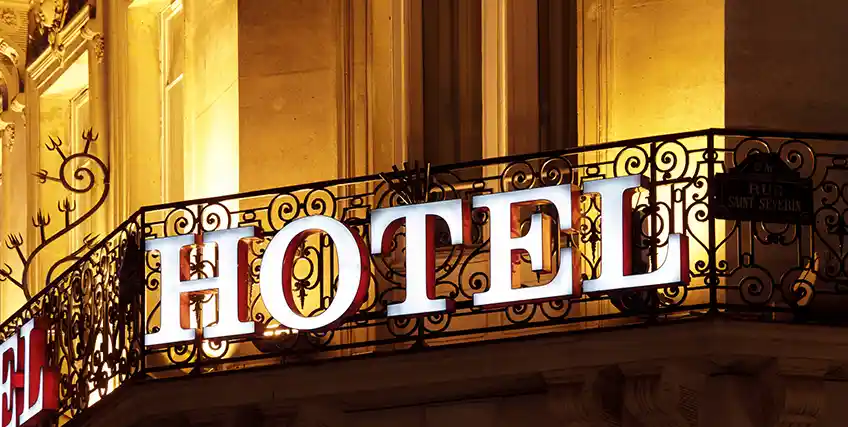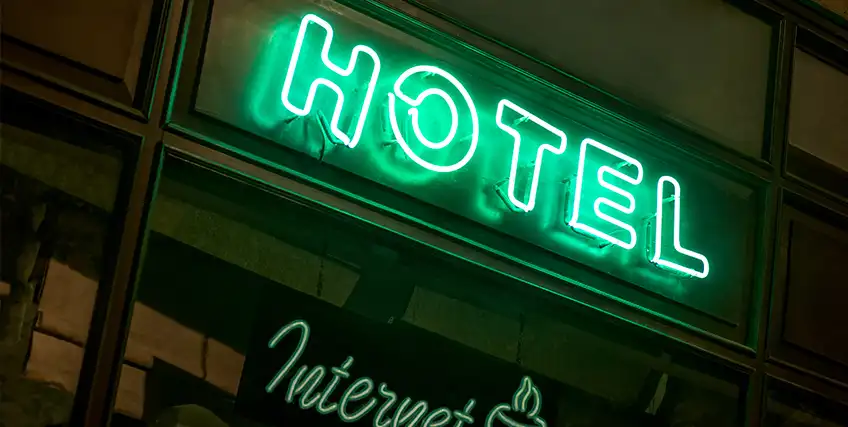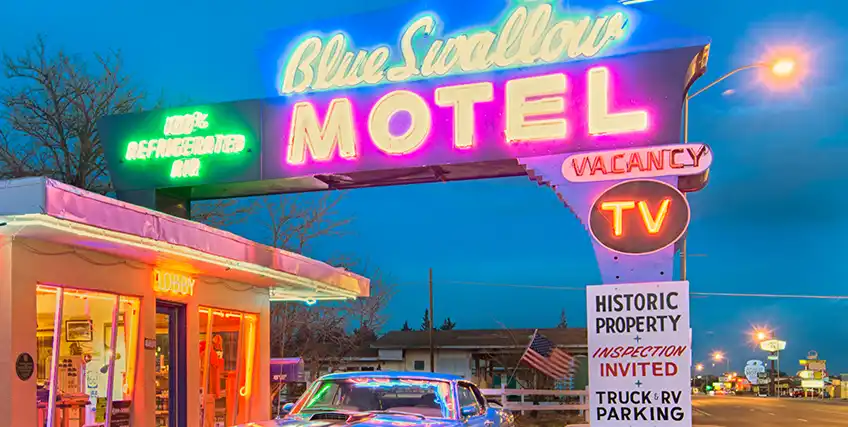What to Expect When Buying a Hotel in Today’s Market
April 01, 2025 | Last Updated on: April 01, 2025

The hospitality industry has witnessed a lot of significant shifts in the past few years. These changes include navigating the post-pandemic recovery period to adapting to evolving traveler preferences. In today’s time, the hotel market is marked by rising operational costs, dynamic market trends, and heightened investor interest.
Hoteliers or entrepreneurs who are on their journey to buy a hotel, it is essential to understand not only about the financials but also the broader dynamics shaping this industry. So, let’s dive into this article where we will talk about the current overview of the hotel industry and its challenges, how hotel financing and real estate loans play role in acquisitions, and all the critical factors to evaluate before buying a hotel business.
The Hotel Industry Landscape and The Role of Financing
You’ll be glad to know that the hospitality industry, like many other segments of the travel sector, has bounced back impressively since 2022. According to STR, in May 2024, the U.S. hotels experienced a 4.0% year-over-year increase in Revenue per Available Room (RevPAR), driven by a 1.5% rise in occupancy and a 2.4% increase in Average Daily Rate (ADR). These metrics significantly indicate strong performance and a growing demand across various types of hotel properties.
Nevertheless, hotel ownership comes with its unique set of challenges. These include operational costs that have surged due to inflation, labor shortages, and the cost of tech-driven upgrades to enhance the guest experience. Other short-term rental competition platforms like Airbnb also add another layer of pressure, especially in leisure-focused markets.
To tackle these challenges, financing becomes an essential part in buying a hotel. If you’re planning to buy a hotel franchise like Marriott or Hilton, or exploring independent hotel, boutique hotel options, you can easily rely on a mix of commercial real estate loans, SBA loans, or private lenders to complete the transaction. Additionally, these loans help investors to cover the purchase price, renovations, and working capital.
Small business entrepreneurs who are looking for hotel ownership can use SBA 504 loans to finance fixed assets, such as land and buildings. These loans to buy a hotel offer longer repayment terms and lower down payments, making them attractive for buyers entering the hotel business or scaling a new business venture. Moreover, working with lenders who specialize in the hospitality sector can provide additional guidance during the approval and underwriting process.
Key Things to Know Before Buying a Hotel
If you’re thinking about how to buy a hotel, it is important to understand that buying a hotel requires a lot of investment. No matter if you’re looking to buy a motel, boutique hotel, or a luxury chain, due diligence is essential. Below are the most important areas to focus on before buying a hotel:
Location, Local Market & Demand
A hotel’s performance hinges largely on location. Factors such as seasonality, tourist volume, and proximity to business districts or airports can influence occupancy rates. Conduct a comprehensive market analysis to assess the local market, including competition, ADR, RevPAR, and target market preferences.
For example, hotels located near convention centers often benefit from year-round business bookings, while those near beaches or ski resorts may experience more seasonal peaks.
Financial Statements & Performance Metrics
Review the hotel’s financial statements, including revenue, net operating income (NOI), and cash flow. Understand occupancy rates, RevPAR, and ADR trends over at least the past three years. These figures are essential for evaluating the hotel’s valuation and forecasting future profitability. In addition to reviewing past performance, take time to compare these figures with industry benchmarks to see how the property stacks up.
Lenders will want to see strong financials, so gathering tax documents, balance sheets, and other key metrics is vital. Make sure to factor in liabilities like existing debts or outstanding contracts with a management company. It's also a good idea to verify if any pending lawsuits or legal claims could affect the financial health of the hotel.
Physical Condition and Renovations
Even if a property appears move-in ready, it’s crucial to assess the true condition. Many hotel purchases involve some level of renovation, especially if the property is outdated or needs upgrades to meet brand standards. Renovation costs should be integrated into your business plan and financing strategy.
Hire professional inspectors to evaluate structural integrity, HVAC systems, plumbing, and fire safety measures. Deferred maintenance can quickly snowball into major expenses if not properly budgeted for in the early stages.
Brand Affiliation and Hotel Franchise Considerations
If you plan to buy a hotel franchise like Hilton or Marriott, understand the terms of the franchise agreement. Brand affiliation can bring operational support, customer loyalty, and marketing benefits, but may also require compliance with strict standards and fees.
Franchise contracts often include clauses that govern everything from the hotel’s signage and bedding to reservation systems and customer service protocols. Assess whether the hotel brand aligns with your intended guest experience, management style, and market positioning. If you prefer more operational flexibility, consider an independent or boutique hotel model instead.
Legal, Zoning, and Compliance Issues
Review all zoning regulations and legal aspects related to the hotel property. Are there any restrictions that could affect operations or renovations? Check for permits, licenses, and any pending violations. Work with a real estate attorney who understands commercial real estate and hospitality law.
Zoning laws can impact your ability to expand or renovate, especially in historical districts or environmentally protected zones. Legal due diligence at this stage can help you avoid costly surprises post-acquisition.
Staffing and Hotel Management
Strong hotel operations depend on effective staffing and reliable hotel management. When buying an existing hotel, assess employee retention, roles, compensation, and training. If you’re working with a third-party management company, review their performance and contractual obligations.
Speak with current employees, if possible, to understand workplace culture, turnover rates, and morale. A motivated and skilled staff is a key driver of guest satisfaction, which in turn directly affects your bottom line.
Online Presence and Guest Reputation
In today’s digital era, a hotel’s reputation can make or break its success. Check reviews on booking platforms, social media sentiment, and guest satisfaction metrics. A poor online presence may require investment in marketing and staff retraining to elevate guest experience.
Positive feedback on platforms like Google Reviews not only boosts bookings but also influences your ranking in search engine results. Don’t underestimate the value of digital visibility when planning your long-term hotel operations.
Financing and Loan Preparation
Financing is one of the most vital components of any hotel purchase. Begin by organizing your financials like personal credit, business income, and investment portfolio. Prepare a comprehensive business plan that outlines forecasts, renovation costs, and a strategy for revenue growth.
Approach lenders early in the process to explore loan products that fit your needs. Interest rates, loan terms, and down payment requirements will vary depending on the type of property and your credit profile. Be transparent with lenders about your experience in the hospitality sector, as it can influence the type of financing you qualify for.
Whether you're buying a hotel business or expanding a portfolio of real estate investments, careful planning and lender communication can streamline the financing process. Consider consulting a hospitality-focused financial advisor to help you navigate the complexities of commercial real estate financing.
Conclusion
Buying a hotel in today’s market presents both opportunities and risks. With rising RevPAR and evolving guest expectations, savvy investors must conduct thorough research and financial analysis. From understanding property conditions and legal zoning to developing a solid business plan and evaluating brand alignment, each step requires a strategic mindset.
With careful planning, market awareness, and due diligence, your next hotel purchase could become a profitable addition to your investment portfolio. Remember, the path to successful hotel ownership lies in balancing optimism with realism and surrounding yourself with experts who understand the hospitality industry.
If buying a hotel is on your radar, now is a great time to explore your options. Connect with real estate professionals, compare financing offers from lenders, and tour available hotel rooms in your target markets.
Frequently Asked Questions About Buying a Hotel
Is buying a hotel a profitable investment in 2025?
Buying a hotel can be profitable with the right planning, location, and operational strategy. Market data from 2024 shows growth in RevPAR and ADR, which indicates solid earning potential when matched with good management and guest satisfaction.
What type of hotel is ideal to buy, franchise or independent?
Buying a hotel depends on your goals. A hotel franchise (like Hilton or Marriott) offers brand support and recognition but comes with franchise fees and brand requirements. An independent or boutique hotel offers more freedom but demands stronger individual marketing and operations planning.
What documents should I review before buying a hotel?
You should review the hotel's financial statements, tax returns, occupancy data, cash flow reports, RevPAR trends, and any existing liabilities when buying a hotel. Also, check franchise agreements (if applicable), zoning clearances, and inspection reports.
Do I need a business plan to get hotel financing?
Absolutely. A solid business plan helps lenders assess your vision, revenue projections, risk management strategies, and to understand how much it is to buy a hotel. Additionally, it improves your chances of approval and helps you stay focused after acquisition.
What’s the role of RevPAR and ADR when evaluating hotel performance?
RevPAR (Revenue per Available Room) and ADR (Average Daily Rate) are critical performance indicators in the hotel industry. These metrics help you understand how well a hotel is performing in generating revenue from its available rooms.




